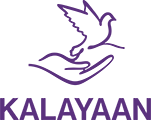December 8, 2015
Migrant domestic workers in the UK after the Modern Slavery Act
On December 1st, a panel discussion on the situation of Migrant Domestic Workers in the UK after the Modern Slavery Act was held in the House of Commons. The event was sponsored by Fiona Mactaggart MP and organised by domestic workers in Justice 4 Domestic Workers, the supporting organization Kalayaan and Unite the Union. This event brought together a range of supporters who talked about the current issues that migrant domestic workers are facing in the UK, who in spite of the Modern Slavery Act remain tied to their employers by the immigration rules. The panelists reiterated how pressing the current situation is and how important it is for something to be done.
Speakers included Fiona Mactaggart MP, Marissa Begonia of Justice 4 Domestic Workers, Karin Pape of the International Domestic Workers’ Federation, Ross Jardin who presented his research into health and safety issues which effect migrant domestic workers and Sarbjit Johal who had compiled a booklet on domestic workers’ stories. James Ewins who has been commissioned by the Home Secretary to carry out a review of the tied visa also spoke. As his findings have not yet been published by the Home Office he had to focus on the process of the review and the challenges of evidencing the hidden lives and treatment of migrant domestic workers in the UK. The event was Chaired by Diana Holland, Assistant General Secretary of Unite.
The event was packed with standing room only and many migrant domestic workers were present who spoke out from the floor. An exhibition of photos by Elijah Villanueva of migrant domestic workers in the UK was displayed around the room.
The speakers spoke of the historic struggle of migrant domestic workers in the UK, how the situation remains dire at present in spite of the Modern Slavery Act and the importance of continuing to campaign for justice and access to rights in practice for migrant domestic workers. This includes working to change the immigration rules in the UK to restore the rights contained within the Original Overseas Domestic Worker visa and to push for the UK to sign and ratify the International Labour Organisation’s Domestic Workers Convention 189 on ‘Decent Work for Domestic Workers’. This sets out the entitlements and protections that domestic workers should have around the world. The convention sets standards for domestic workers in terms of their working conditions, working hours, health and safety, payment, etc. This convention was established in 2011 and since then it has been ratified by twenty-two countries, however the UK is yet to ratify the convention.
Blog by Shavonne Ravlich (Kalayaan volunteer)


